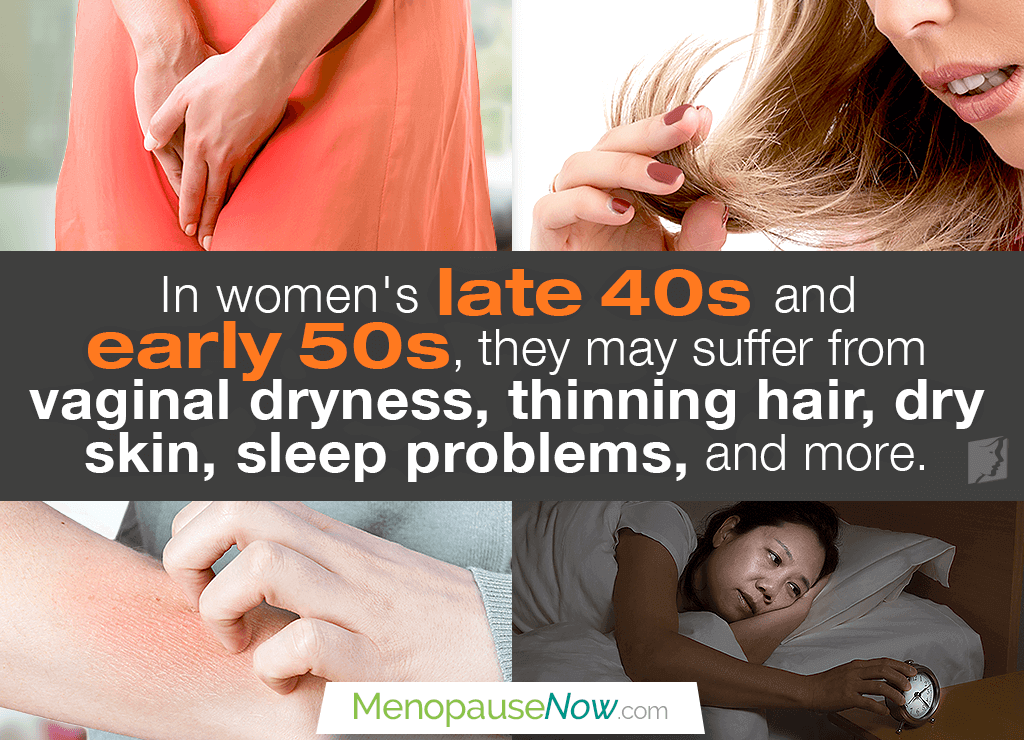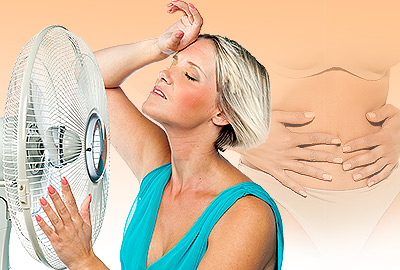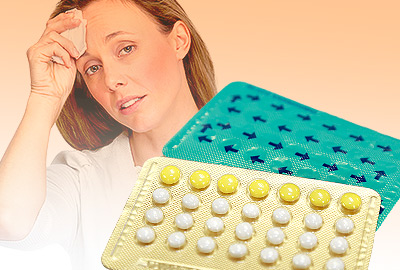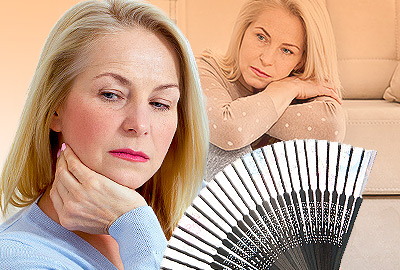Middle-aged women may experience a bout of menopause symptoms as the grand finale to their fertile years, some of which may have shown up years prior and continue to this day. Continue reading to discover some of the most common menopause symptoms in late 40s and early 50s as well as how you can manage them for ideal health and well-being.
What Stage Am I In?
Women who are in their late 40s and early 50s are most probably in perimenopause and about to end reproductive functions all together with the onset of menopause.
The average age of menopause in the United States is 51.1 While the transition into menopause can last up to a decade before its onset, the average length of perimenopause is four years.2
In the last year or two of perimenopause, the drop in estrogen levels accelerates rapidly as the majority of its production came from the ovarian eggs. Progesterone production also takes a hit.
As both reproductive hormones are about to reach their all-time low as they continue fluctuating, symptoms of menopause in early 40s may intensify while other psychological and physical discomforts appear for the first time.
Menopause Symptoms from Late 40s to Early 50s
Aside from any previously experienced or ongoing symptoms from earlier in perimenopause, such as irregular periods, hot flashes, night sweats, mood swings, and difficulty concentrating, it is not uncommon for women to experience the following closer to their menopause date:
Vaginal dryness
The drying and thinning of vaginal tissues from decreased estrogen levels can lead to vaginal dryness and atrophy in women who are nearing the end of perimenopause. If not treated abruptly, this symptom can turn into a complication further on.
Thinning or excessive hair
With a continued disruption in the balance between androgens, estrogen, and progesterone, women may find themselves suffering from hair loss or thinning of the hair on the scalp as well as hirsutism, male-pattern hair growth.
Dry skin
Estrogen has been scientifically found to prevent a decrease in skin collagen, thus maintaining thickness and moisture.3 As such, when its levels decline and stay consistently low, women are more likely to suffer from dry, itchy skin.
Changes in sexual function
Loss of libido and inability to reach orgasm can all plague perimenopausal women. Changes in sexual function can be further compromised if a woman is suffering from depression, changes in body odor, or even vaginal dryness and atrophy.
Sleep disturbances
Sleep quality worsens with aging, and sleep problems are often exacerbated from hormonal fluctuations that disrupt sleep cycles. Studies have shown that as much as 25 minutes of sleep per night can be lost when a woman is premenstrual in her late reproductive years.4
Plus, night sweats, insomnia, and other sleep disorders can leave women feeling exhausted and provoke anxiety, fatigue, increased irritability, and more throughout her following day.
Conclusions
While any of the aforementioned symptoms and more are likely to be in full swing by the time a woman reaches her late 40s or early 50s, it is possible to pass through menopause with no symptoms. For the unfortunate ones, lifestyle adjustments that focus on a healthy diet, regular exercise, and wholesome habits alongside the use of alternative medicine play a crucial role in symptom management.
Find out about natural and effective menopause symptom treatments that encourage optimal endocrine system health for easy sailing into one's postmenopausal years.
Sources
- Cleveland Clinic. (2019). Menopause, Perimenopause and Postmenopause. Retrieved October 29, 2019, from https://my.clevelandclinic.org/health/diseases/15224-menopause-perimenopause-and-postmenopause
- Harvard Health Publishing. (2019). Menopause and Perimenopause. Retrieved October 29, 2019, from https://www.health.harvard.edu/a_to_z/menopause-and-perimenopause-a-to-z
- John Hopkins Medicine. (n.d.). Introduction to Menopause. Retrieved October 29, 2019, from https://www.hopkinsmedicine.org/health/conditions-and-diseases/introduction-to-menopause
- National Institute on Aging. (2017). What Are the Signs and Symptoms of Menopause? Retrieved October 29, 2019, from https://www.nia.nih.gov/health/what-are-signs-and-symptoms-menopause
Footnotes:
- Mayo Clinic. (2017). Menopause: Symptoms & causes. Retrieved October 29, 2019, from https://www.mayoclinic.org/diseases-conditions/menopause/symptoms-causes/syc-20353397
- Harvard Health Publishing. (2018). Perimenopause: Rocky road to menopause. Retrieved October 29, 2019, from https://www.health.harvard.edu/womens-health/perimenopause-rocky-road-to-menopause
- Shah, M.G. & Maibach, H.I. (2001). Estrogen and skin. An overview. American Journal of Clinical Dermatology, 2(3), 143-150. doi: 10.2165/00128071-200102030-00003
- Santoro, N. et al. (2015). Menopausal Symptoms and Their Management. Endocrinology and Metabolism Clinics of North America, 44(3), 497-515. doi: 10.1016/j.ecl.2015.05.001




